Phenazopyridine hydrochloride
Synonym(s):2,6-Diamino-3-(phenylazo)pyridine hydrochloride;Phenazopyridine hydrochloride;Urodine
- CAS NO.:136-40-3
- Empirical Formula: C11H12ClN5
- Molecular Weight: 249.7
- MDL number: MFCD00035347
- EINECS: 205-243-8
- SAFETY DATA SHEET (SDS)
- Update Date: 2026-01-21 18:05:59
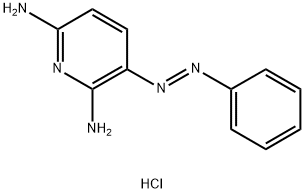
What is Phenazopyridine hydrochloride ?
Description
Phenazopyridine is an azo dye with analgesic properties. It decreases the bladder distension-induced firing rate of afferent bladder Aγ-fibers, but not C-fibers, in anesthetized rats when administered at a doses of 0.3, 1, and 3 mg/kg. Formulations containing phenazopyridine have been used as analgesics in the treatment of urinary tract infections.
Chemical properties
Brick-Red Crystals
Originator
Phenazopyridine ,AroKor Holdings Inc.
The Uses of Phenazopyridine hydrochloride
Phenazopyridine hydrochloride has been used for 50 years as an analgesic drug either alone or in combination with other drugs to reduce pain associated with urinary tract infection. An azo dye used in urinary tract infections. Also used as a local anesthetic. Exposure to phenazopyridine hydrochloride occurs during manufacture and formulation.
The Uses of Phenazopyridine hydrochloride
An azo dye used in treatment of urinary tract infections. Used as an analgesic (urinary tract).
The Uses of Phenazopyridine hydrochloride
anticonvulsant, antieleptic
The Uses of Phenazopyridine hydrochloride
therapeutic for urinary tract infections
What are the applications of Application
Phenazopyridine hydrochloride is a compound which can be used as an analgesic for the urinary tract
Definition
ChEBI: A hydrochloride obtained by combining phenazopyridine with one equivalent of hydrochloric acid. A local anesthetic that has topical analgesic effect on mucosa lining of the urinary tract. Its use is limited by problems with toxicity (primarily blood disord rs) and potential carcinogenicity.
Manufacturing Process
Phenyldiazene chloride reacted with 2,6-diaminopyridine and in the result 2,6diamino-3-(phenylazo)pyridine was obtained.
In practice it is usually used as monohydrochloride.
brand name
Pyridium (Parke-Davis).
Therapeutic Function
Urinary analgesic, Antiseptic, Diagnostic aid
General Description
Brick-red microcrystals with a slight violet luster or a purple powder. Aqueous solutions are yellow to brick-red and slightly acidic; they may be stabilized by the addition of 10% glucose. Slightly bitter taste.
Air & Water Reactions
Dust can be explosive when suspended in air at specific concentrations. Phenazopyridine hydrochloride may be sensitive to air and light. . Very slightly water soluble.
Reactivity Profile
Phenazopyridine hydrochloride is an azo compound. Azo, diazo, azido compounds can detonate. This applies in particular to organic azides that have been sensitized by the addition of metal salts or strong acids. Toxic gases are formed by mixing materials of this class with acids, aldehydes, amides, carbamates, cyanides, inorganic fluorides, halogenated organics, isocyanates, ketones, metals, nitrides, peroxides, phenols, epoxides, acyl halides, and strong oxidizing or reducing agents. Flammable gases are formed by mixing materials in this group with alkali metals. Explosive combination can occur with strong oxidizing agents, metal salts, peroxides, and sulfides.
Fire Hazard
Flash point data for Phenazopyridine hydrochloride are not available. Phenazopyridine hydrochloride is probably combustible.
Clinical Use
Phenazopyridine hydrochloride, 2,6-diamino-3-(phenylazopyridinehydrochloride (Pyridium), is a brick-red, finecrystalline powder. It is slightly soluble in alcohol, in chloroform,and in water.Phenazopyridine hydrochloride was formerly used asa urinary antiseptic. Although it is active in vitro againststaphylococci, streptococci, gonococci, and E. coli, it has nouseful antibacterial activity in the urine. Thus, its presentutility lies in its local analgesic effect on the mucosa of theurinary tract.
Usually, phenazopyridine is given in combination withurinary antiseptics. For example, it is available as Azo-Gantrisin, a fixed-dose combination with the sulfonamide antibacterialsulfisoxazole, and as Urobiotic, a combination withthe antibiotic oxytetracycline and the sulfonamide sulfamethizole. The drug is rapidly excreted in the urine, towhich it gives an orange-red color. Stains in fabrics may beremoved by soaking in a 0.25% solution of sodium dithionite.
Safety Profile
Confirmed carcinogen with experimental carcinogenic and tumorigenic data. A poison by intraperitoneal and intravenous routes. Moderately toxic by ingestion. Human systemic effects by ingestion: somnolence, cyanosis, dlarrhea, nausea or vomiting, anuria or decreased urine volume, normocytic anemia, methemoglobinemiacarboxyhemoglobinemia, dehydration, changes in blood sodium levels. Mutation data reported. When heated to decomposition it emits very toxic fumes of NOx and HCl
Carcinogenicity
Phenazopyridine hydrochloride is reasonably anticipated to be a human carcinogen based on sufficient evidence of carcinogenicity fromstudies in experimental animals.
Properties of Phenazopyridine hydrochloride
| Melting point: | 139°C |
| Boiling point: | 394.6°C (rough estimate) |
| Density | 1.2645 (rough estimate) |
| refractive index | 1.6110 (estimate) |
| storage temp. | Sealed in dry,2-8°C |
| solubility | DMSO (Slightly, Heated), Methanol (Slightly, Heated) |
| form | Liquid |
| color | Clear to hazy colorless to yellow |
| Water Solubility | 0.01-0.1 g/100 mL at 20 ºC |
| Merck | 14,7210 |
| Stability: | Light Sensitive |
| CAS DataBase Reference | 136-40-3(CAS DataBase Reference) |
| IARC | 2B (Vol. 24, Sup 7) 1987 |
| EPA Substance Registry System | Phenazopyridine hydrochloride (136-40-3) |
Safety information for Phenazopyridine hydrochloride
| Signal word | Warning |
| Pictogram(s) |
 Exclamation Mark Irritant GHS07  Health Hazard GHS08 |
| GHS Hazard Statements |
H302:Acute toxicity,oral H315:Skin corrosion/irritation H319:Serious eye damage/eye irritation H335:Specific target organ toxicity, single exposure;Respiratory tract irritation H351:Carcinogenicity |
| Precautionary Statement Codes |
P202:Do not handle until all safety precautions have been read and understood. P261:Avoid breathing dust/fume/gas/mist/vapours/spray. P301+P312:IF SWALLOWED: call a POISON CENTER or doctor/physician IF you feel unwell. P302+P352:IF ON SKIN: wash with plenty of soap and water. P305+P351+P338:IF IN EYES: Rinse cautiously with water for several minutes. Remove contact lenses, if present and easy to do. Continuerinsing. P308+P313:IF exposed or concerned: Get medical advice/attention. |
Computed Descriptors for Phenazopyridine hydrochloride
| InChIKey | QQBPIHBUCMDKFG-GEEYTBSJSA-N |
Phenazopyridine hydrochloride manufacturer
Gangwal Healthcare Pvt Ltd
New Products
Paroxetine Impurity G/Paroxetine Related Compound E 1-Aminocyclopentane carbonitrile (RS)-beta-Amino-beta-(4-bromophenyl)propionic acid N,N CARBONYL DIIMIDAZOLE 2-Amino-5-bromo-4-(trifluoromethyl)pyridine(RM for Indian lab) Benzyl (3R,4S)-3-(2-bromoacetyl)-4-ethylpyrrolidine-1-carboxylate (R)-1-Benzyl-3-pyrrolidinecarbonitrile Betahistine EP Impurity C Cyclobenzaprine N-oxide/Citalopram Related Compound E Chlorthalidone Impurity I Carbamazepine EP Impurity G Sumatriptan Succinate USP Related Compound C 2,2'-(5-methyl-1,3-phenylene)-di(2-Methylpropionitrile) 4-Fluorothiophenol 1-methyl amino-2,4-dinitro benzene 5-Methyl-1,3-benzenediacetonitrile (R)-BoroLeu-(+)-Pinanediol-CF3COOH 4-(5-amino-1-methyl-1h-benzoimidazol-2-yl)-butyric acid isopropyl ester. 4-Bromo Benzylcyanide 3-Hydroxypropionitrile valeronitrile 3,4 Dimethoxy Benzylcyanide 3-chlorobenzyl cyanide 2-Chloro BenzylcyanideRelated products of tetrahydrofuran


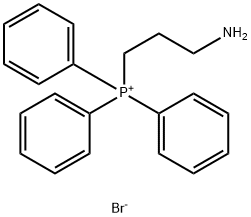
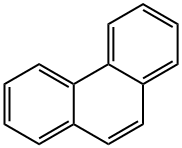

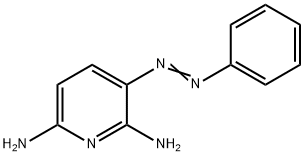
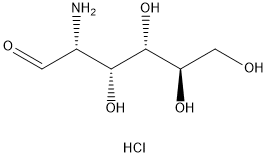

You may like
-
 PHENAZOPYRIDINE HCL 99%View Details
PHENAZOPYRIDINE HCL 99%View Details -
 136-40-3 95-99%View Details
136-40-3 95-99%View Details
136-40-3 -
 3-Phenylazo-2,6-diaminopyridine Monohydrochloride CAS 136-40-3View Details
3-Phenylazo-2,6-diaminopyridine Monohydrochloride CAS 136-40-3View Details
136-40-3 -
 Phenazopyridine HCl 98.00% CAS 136-40-3View Details
Phenazopyridine HCl 98.00% CAS 136-40-3View Details
136-40-3 -
 Phenazopyridine hydrochloride CAS 136-40-3View Details
Phenazopyridine hydrochloride CAS 136-40-3View Details
136-40-3 -
 Phenazopyridine Hydrochloride CAS 136-40-3View Details
Phenazopyridine Hydrochloride CAS 136-40-3View Details
136-40-3 -
 Phenazopyridine hydrochloride CAS 136-40-3View Details
Phenazopyridine hydrochloride CAS 136-40-3View Details
136-40-3 -
 Phenazopyridine HCL API MANUFACTURER INDIAView Details
Phenazopyridine HCL API MANUFACTURER INDIAView Details
136-40-3
